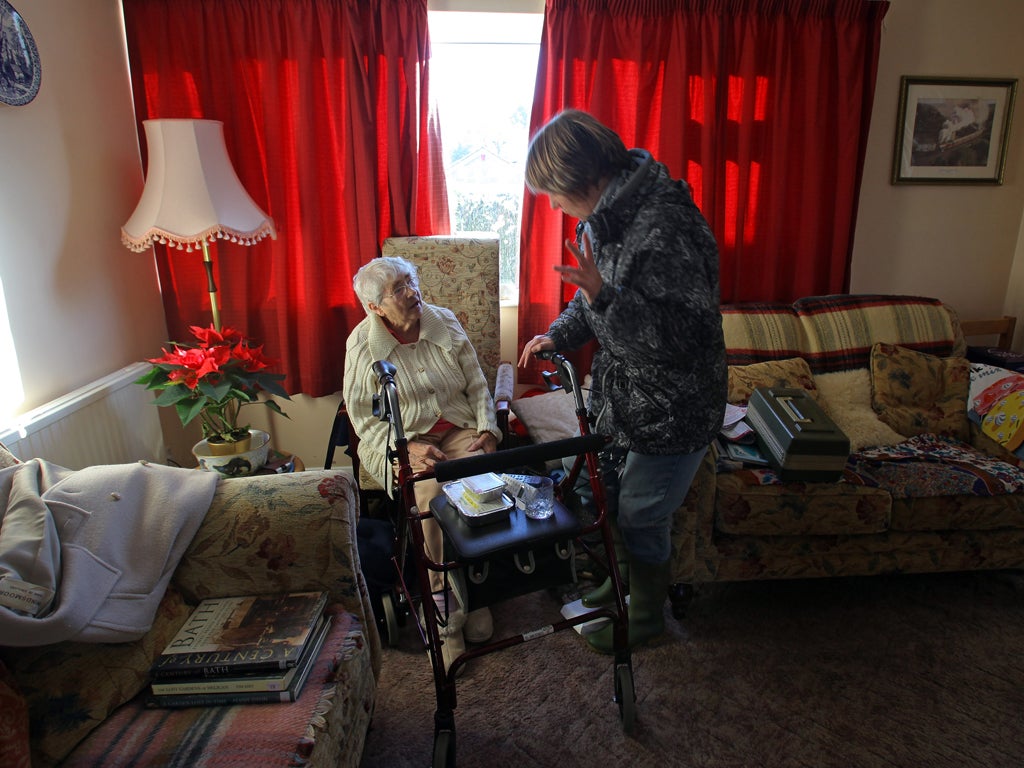The shameful exploitation of care workers must end
Many home care workers aren’t being paid for the travel time that’s essential to their jobs. Over 200,000 are paid less than the minimum wage

It’s sometimes said that a society should be judged by how it treats its most vulnerable people. If so, we are failing shamefully.
Tens of thousands of home care workers, employed to help elderly and disabled people wash, dress and cook for themselves, are being paid below the minimum wage. Some earn as little as £5 an hour, too little for the most basic standard of living. Their treatment is not only immoral but flagrantly illegal - and yet it remains widely ignored.
How can this be happening? The answer comes down to how home care work is organised. Domiciliary care workers spend their day shuttling between clients' homes, not uncommonly driving 20 minutes for an appointment as short as 15 minutes. As a result, the law is clear that they must be paid for this travel time - after all, it’s done in the course of their job. Yet many care workers are only paid for the time they spend with clients, pushing down their actual pay - already as low as £6.25 or £6.50 an hour in their contracts - below the minimum wage.
This practice is indisputably illegal and yet it remains widespread. Best estimates suggest as many as 220,000 home care workers are paid less than the minimum wage. Nor are they the only victims of a chronically undervalued sector. In our new report, care workers shared with us their diaries from a typical day. They reveal that, for all the diligence of the workers themselves, the quality of care inevitably suffers when work is paid and organised like this.
Take Janice, a care worker from Newcastle. Her client Mr J is incontinent and has soiled himself when she arrives for her 30 minute appointment to help him make his lunch. He only gets two shower days a week and this isn't one of them so Mr J asks to have a shower instead of eating. He wants to help Janice stick to her schedule. Of course she declines, helps him wash and eat, runs over by 10 minutes, and doesn’t get paid for the extra. Janice has 20 years’ experience of dealing with situations like this and on this particular day she started work at 7:30am and finished well after 7:30pm. After travel time and underpayments she earned £5.13 an hour.
Sharon, who’s been a care worker in County Durham for 11 years, starts her day with a 30 minute appointment to help an elderly woman get out of bed, dress, wash and eat - less than it takes someone young and able-bodied. Later, she has a 30 minute appointment at 11am to give a client his dinner. She always thinks it’s far too early for him to eat but that's just when the daily appointment is scheduled. Sharon starts at 6:45am, ends at 6:55pm, and in her contract she's paid £1.63 for each 15 minute 'unit of care'. After travel time that works out as £5.13 an hour. Take away the cost of petrol used for her work and she gets £4.14 an hour.
Some will say this is all a question of a squeeze on social care spending and of course funding is relevant. Such is the pressure on budgets that some elderly care contracts are now tendered through reverse eBay style auctions, in which providers underbid each other live online. But let's be clear: underpayment of the minimum wage is not an understandable strategy for dealing with hard-pressed budgets or for winning contracts. It is illegal and must be prosecuted.
Local and national government must act to end the shameful treatment of Britain's home care workers. 15 minute care slots must be scrapped for all except basic monitoring. The freeze on minimum wage enforcement spending must end. Care workers' payslips, often pages long, must be simplified to show average hourly pay. HMRC must investigate the sector and prosecute violators. Local Authority contracts must pay enough to fund the payment of travel time. And fines for minimum wage underpayment must rise. As long as the maximum fine for avoiding the minimum wage is £5,000, one tenth the £50,000 maximum fine for fly-tipping, we will rightly be accused of treating some of Britain’s most vulnerable people like trash.
Join our commenting forum
Join thought-provoking conversations, follow other Independent readers and see their replies
Comments
Bookmark popover
Removed from bookmarks